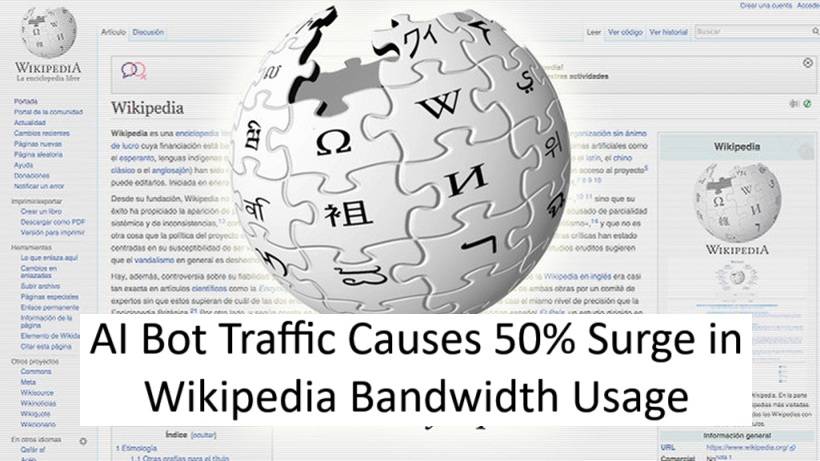The Wikimedia Foundation has revealed that Wikipedia's bandwidth usage has surged by 50% over the past year, largely due to the increasing activity of AI-powered bot crawlers. These bots, often used by AI companies to train language models, have been scraping massive amounts of data from the online encyclopedia—leading to notable strain on the platform's infrastructure.
AI Bots Are Pulling Heavy Data Loads
Since early last year, Wikipedia has seen a significant spike in automated traffic, particularly from bots downloading media files and streaming videos hosted on Wikimedia Commons. While human interest in specific topics naturally leads to usage spikes—like the surge in page visits and media views following the death of former U.S. President Jimmy Carter in December—the foundation noted that AI bot traffic adds a persistent and heavy load to the site.
In Carter's case, interest spiked not just in his biography but also in archival video content, such as his debate with Ronald Reagan, which was repeatedly accessed and downloaded.
Bots Are Behind Most High-Cost Traffic
Wikimedia emphasized that about 65% of its most bandwidth-intensive traffic is now attributed to automated crawlers, not human users. Although the foundation considers the current situation manageable for now, it warns that the trend is unsustainable and could grow worse if left unaddressed.
Attribution Matters—But It's Lacking
Beyond the technical concerns, Wikimedia is also frustrated by the lack of proper attribution from AI systems using its content. The organization highlights that attribution isn't just a formality—it's critical for driving awareness, encouraging user contributions, and generating the donations that keep Wikipedia running.
Raising Awareness and Seeking Support
By going public with these findings, Wikimedia hopes to raise awareness about the growing burden AI bots are placing on its systems—and the lack of support in return. The foundation is calling for more responsible data use, better attribution practices, and renewed donor support to help maintain and scale the infrastructure behind one of the world's most used free knowledge platforms.
